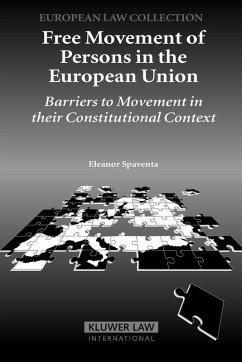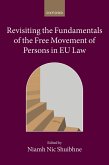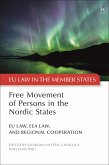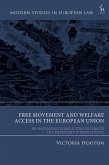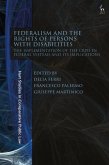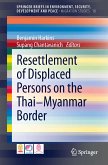• the refinement of the concept of discrimination;
• the notion of 'non-discriminatory barrier' and remuneration in relation to the free movement of services;
• non-discriminatory barriers to the freedom of establishment and the movement of workers;
• the inadequacy of the market access test;
• the notion of Union citizenship and its impact on the economic free movement provisions;
• the right to pursue an economic activity free of disproportionate market regulation.
The book contains a detailed and extensive analysis of the relevant case law. As a deeply-informed assessment of the conceptual underpinnings and normative potentialities of these fundamental Community rights, Free Movement of Persons in the European Union will be of inestimable value to academics, as well as to postgraduate students and others concerned with the ongoing process of European integration.
Dieser Download kann aus rechtlichen Gründen nur mit Rechnungsadresse in A, B, BG, CY, CZ, D, DK, EW, E, FIN, F, GR, HR, H, IRL, I, LT, L, LR, M, NL, PL, P, R, S, SLO, SK ausgeliefert werden.

